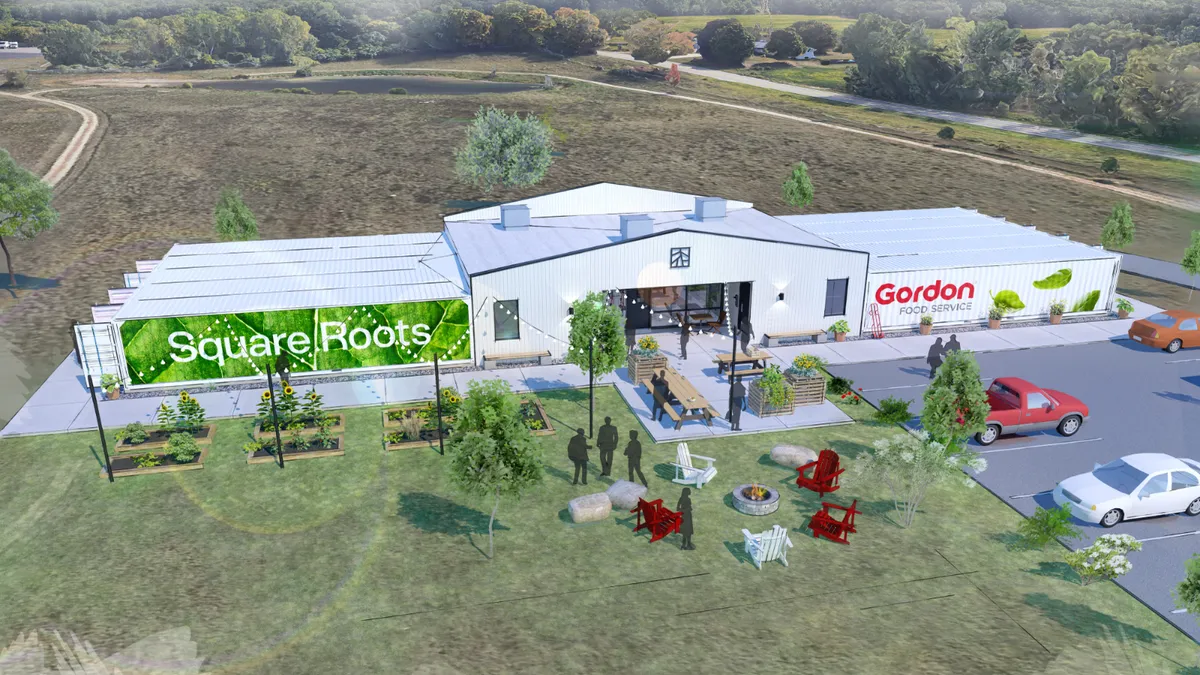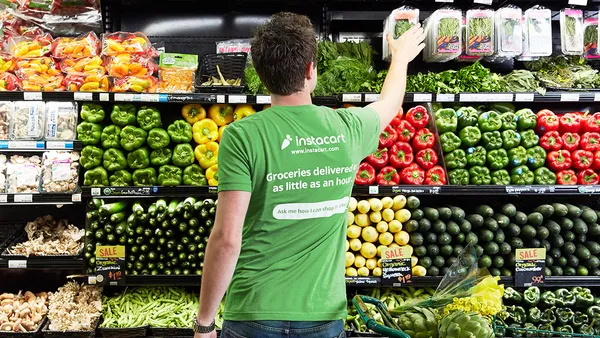Dive Brief:
- North American food distributor Gordon Food Service and indoor farming startup Square Roots have opened their first co-located farm at Gordon's headquarters in Wyoming, Michigan, the companies announced in a press release.
- The farm takes up less than two acres on Gordon Food Service's property and is projected to produce more than 50,000 pounds of herbs and greens annually, which will be non-GMO, pesticide free and available year-round. The herbs and greens will be sold to foodservice customers locally and throughout Michigan, northern Indiana and Ohio.
- Production is already in progress at the farm, which will act as a template for others the companies want to build at Gordon Food Service’s more than two dozen distribution centers in the U.S. and Canada.
Dive Insight:
During a ribbon-cutting ceremony of the farm at Gordon Food Service's headquarters, president and CEO Rich Wolowski said the relationship with Square Roots will help reshape how food is produced, prepared and served.
"We know it's imperative that we participate in the future, today, to ensure we are relevant tomorrow, and this is a model that could help revolutionize our food systems. And it's great that we can prove the concept in our own backyard," Wolowski said.
Gordon Food Service and Square Roots first announced their partnership in March this year with the goal to build vertical farms at distribution centers across the country. No further locations or dates for launching other farms have been announced.
According to the press release, the farm consists of 10 cloud-connected growing units that use sophisticated, digitally-controlled hydroponics and LED lighting systems.
Square Roots has selected a new cohort of farmers through its Next-Gen Farmer training program to tend the farm at Gordon Food Service’s headquarters. Through the program, candidates fulfill a one-year, full-time, paid commitment to learn urban agriculture. The group includes farmers from in and out-of-state.
The annual production of the Square Roots farm is the equivalent of a traditional farm that spans 50 acres, according to the press release. The practice of vertical farming not only produces more in a smaller space, it uses substantially less water than traditional farming and enables hyper-local produce distribution.













